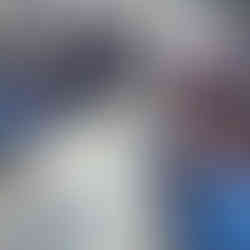Imprinted with Casablanca's Best Community Service Club
- ImprintEd Abroad

- Jan 13, 2019
- 3 min read
Updated: Sep 12, 2019
By Victor Villasana

Until we have the opportunity to travel abroad, our perception of reality is made up of what we see on TV, and we believe the depiction given by the people inside this “little box” is accurate. We listened to our parents and their narratives of the world. Fortunately I had the opportunity to travel outside of the US as a student of Semester at Sea (SAS), where I watched as the waves flowed endlessly across the horizon, trapped yet somehow free, in a vessel that unveiled the world to me. This is where I truly obtained an accurate notion of the people that I once saw in that “little box.” Before I embarked on SAS, I could only ever fantasize about traveling to a foreign country—never mind traveling to thirteen of them! I had never traveled overseas, especially on not on a ship, before this experience. Traveling abroad is something that I always wanted to do during my time as a college student as it allows one to learn about non-Western cultures and see the parallels between those cultures and your own. Semester at Sea gave me that versatility of visiting a variety of cities and countries to get that global perspective I have always sought.
When I arrived in Casablanca, I was shocked to see that Morocco was not as everyone depicted it. Expecting a land filled with a desert oases, I found, instead, that it was like any other urban city. Overcrowded streets, skyscrapers lined the atmosphere, and an abundance of people filled the city as they went about their day. Though the city’s appearance wasn’t exceptional, I found that Moroccan culture had so much to offer me.
I spent a day in Casablanca painting a karrosa, a cart, as part of a service project and learned about what it means to live in Morocco today. I didn’t expect this program, organized by ImprintEd Abroad and SAS and hosted by the Casablanca American Language Center (ALC), to be so impactful! Our SAS group spent the day with the ALC’s service learning club, which is called “Best Community Service Club.” I learned from the Moroccan volunteers (who were conversational to fluent in English) that many Moroccans are multilingual as most schooling system is in Arabic and they don’t have the option to learn English until late middle school. I also learned that college in Morocco is in French and many people struggle with it due to not having sufficient access to this language and must resort to private French tutors during high school to prepare. In Morocco, those who are fluent in French tend to be viewed as people who have access to a higher education and other opportunities. Additionally, our local volunteers prepared their unique cuisine and offered their interpretation of the symbolic meanings of a Moroccan wedding. What I thought would be a simple volunteer program evolved into so much more learning and cultural exchange.
Throughout the day, what first started as a plain wooden contraption developed into a beautiful karrosa and while it developed, we too, grew as global citizens, our fellow, local Moroccan volunteers became our friends. Friendship, I found, was vital throughout the day as it opened a door to communication that allowed us to transcend while also acknowledging our cultural differences. We let go of our preconceived notions that engulfed each culture and dedicated our day in learning what it meant to live in the United States and Morocco. After a day of exchanging stories, trying Moroccan food, and practicing Arabic pronunciation, we bid our new friends farewell. At the end, it was rather difficult to say goodbye. We “ImprintEd” our own marks on Morocco as our new friends made their own mark on the US with the impact they made upon us. Even though we had to sail away after three days in Casablanca, I find comfort knowing that a little part of us was left behind there, in the karrosa we transformed and in the hearts of the Moroccan students who so gladly immersed us in their culture.
Victor Villasana visited Morocco during the spring of 2018 as a student with Semester at Sea. He is, currently, a student in his Junior year at Texas A&M University.





















Comments